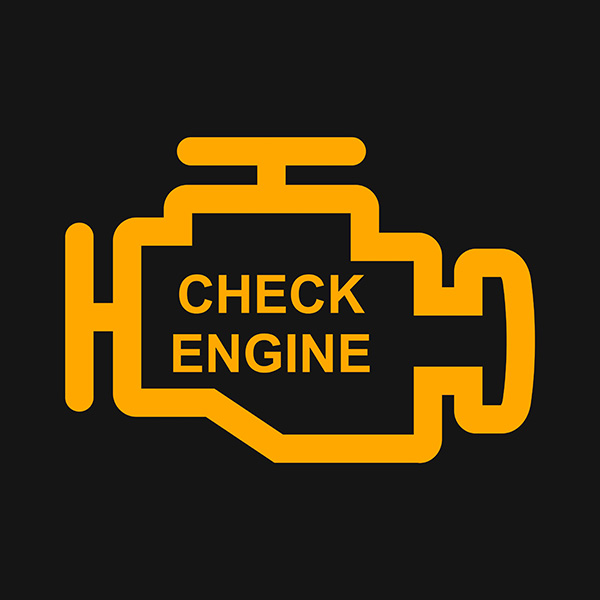
Seeing the check engine light illuminate on your dashboard can be a nerve-wracking experience. It's one of those moments that can make any driver's heart skip a beat. What does it mean? How serious is it? Should you pull over immediately or can it wait? Let's crack the mystery behind this often misunderstood indicator and explore what triggers the check engine light in your car.
The "Check Engine" Warning Light
The check engine light is part of your car's onboard diagnostics system (OBD). When this light turns on, it signals that something within your vehicle's engine or emission control system isn't functioning correctly. The severity of the issue can vary widely, from a loose gas cap to more serious engine problems. Understanding the potential triggers can help you determine the appropriate course of action.
Common Reasons for the Check Engine Light
1. Loose or Faulty Gas Cap
One of the simplest and most common reasons for the check engine light is a loose or damaged gas cap. The gas cap seals the fuel system and maintains pressure within the fuel tank. If it's not properly tightened or if it's cracked, it can cause a disruption in the fuel system, triggering the light. Checking and securing the gas cap is an easy first step to see if this resolves the issue.
2. Faulty Oxygen Sensor
The oxygen sensor measures the amount of unburned oxygen in your car's exhaust system. It sends this information to the engine's computer to help manage the air-fuel mixture. If the oxygen sensor is malfunctioning, it can lead to poor engine performance and reduced fuel efficiency. Replacing a faulty oxygen sensor is crucial for maintaining optimal engine function.
3. Malfunctioning Catalytic Converter
The catalytic converter reduces harmful emissions by converting carbon monoxide and other harmful gasses into less harmful substances. If it's failing, you'll likely notice a drop in fuel efficiency and performance, along with the check engine light. A faulty catalytic converter can also result in your car failing emissions tests.
4. Bad Spark Plugs or Ignition Coils
Spark plugs ignite the air-fuel mixture in the engine's combustion chambers, while ignition coils provide the necessary voltage. If either of these components fails, it can lead to engine misfires, reduced power, and poor fuel economy. Replacing spark plugs and ignition coils as part of regular maintenance can prevent these issues.
5. Mass Airflow Sensor Issues
The mass airflow (MAF) sensor measures the amount of air entering the engine and helps determine the correct amount of fuel to inject. If the MAF sensor is dirty or malfunctioning, it can cause poor engine performance, stalling, and reduced fuel efficiency. Cleaning or replacing the MAF sensor can resolve this problem.
6. Failing Exhaust Gas Recirculation Valve
The exhaust gas recirculation (EGR) valve helps reduce nitrogen oxide emissions by recirculating a portion of the exhaust gasses back into the engine. If the EGR valve is clogged or failing, it can affect engine performance and trigger the check engine light.
When to Take Action
Not every check engine light indication requires immediate action, but addressing the issue promptly is important to avoid further damage. Here's a general guideline on what to do:
Solid Check Engine Light
If the light is steady, it's usually safe to continue driving, but you should have your vehicle checked by a professional as soon as possible. Ignoring the light for too long can lead to more severe problems.
Flashing Check Engine Light
A flashing light typically indicates a more serious issue, such as a severe misfire that can damage the catalytic converter. In this case, it's advisable to stop driving and have the vehicle towed to a repair shop.
How to Diagnose the Issue
To accurately diagnose why the check engine light is on, a technician will use an OBD-II scanner. This tool reads the diagnostic trouble codes (DTCs) stored in your car's computer system. These codes provide insight into what part of the engine or emission system is malfunctioning.
Regular Maintenance and Prevention
Routine maintenance is key to preventing issues that trigger the check engine light. Here are some tips to keep your vehicle running smoothly:
- Regular Oil Changes: Keep up with scheduled oil changes to ensure the engine is lubricated and running efficiently.
- Timely Replacements: Replace spark plugs, air filters, and fuel filters according to your vehicle's maintenance schedule.
- Monitor Fluid Levels: Regularly check and top off essential fluids, including coolant, transmission fluid, and brake fluid.
- Inspect Belts and Hoses: Check for any signs of wear or damage and replace them as needed to prevent more serious issues.
Don't ignore your check engine light. Schedule an appointment with D. Wells Automotive Service today to ensure your car is running at its best!